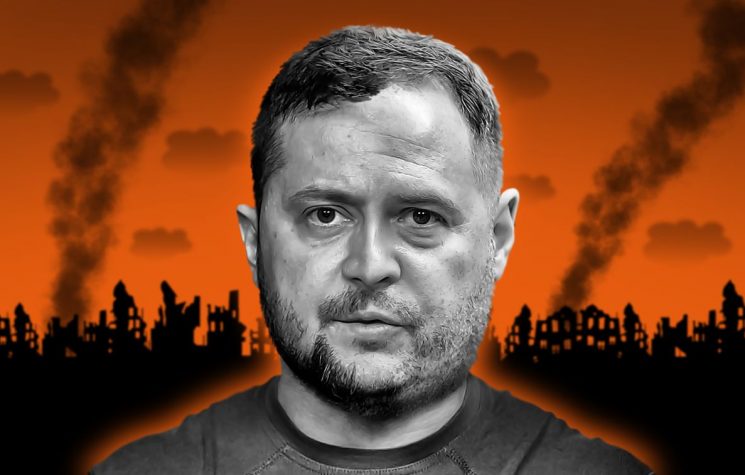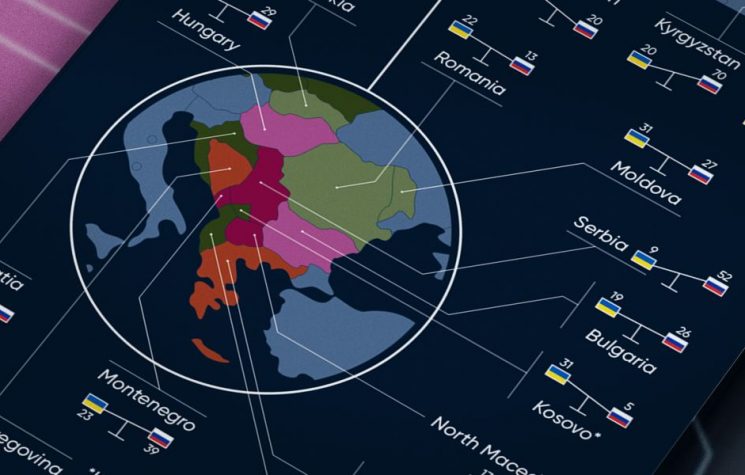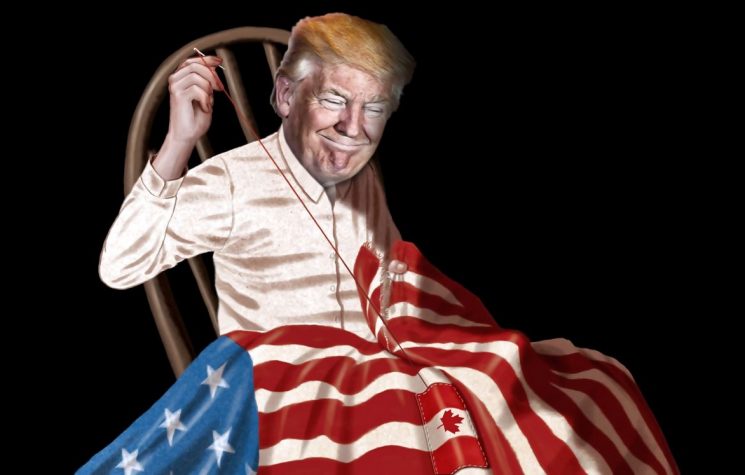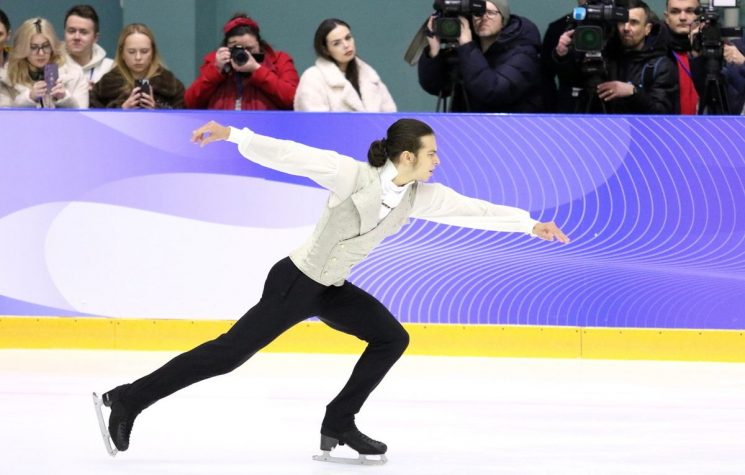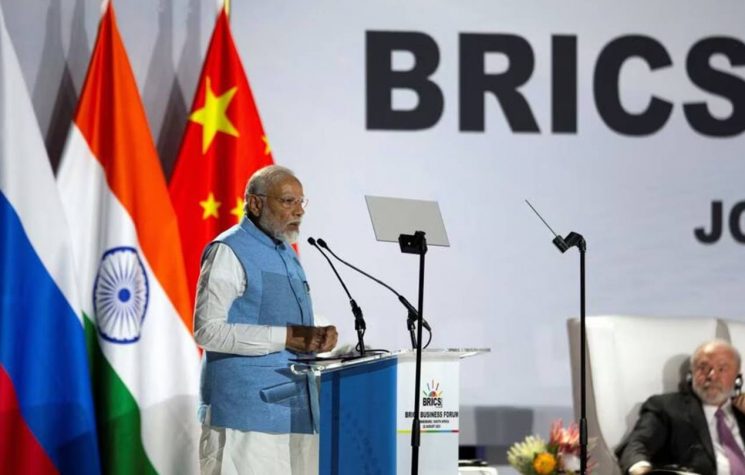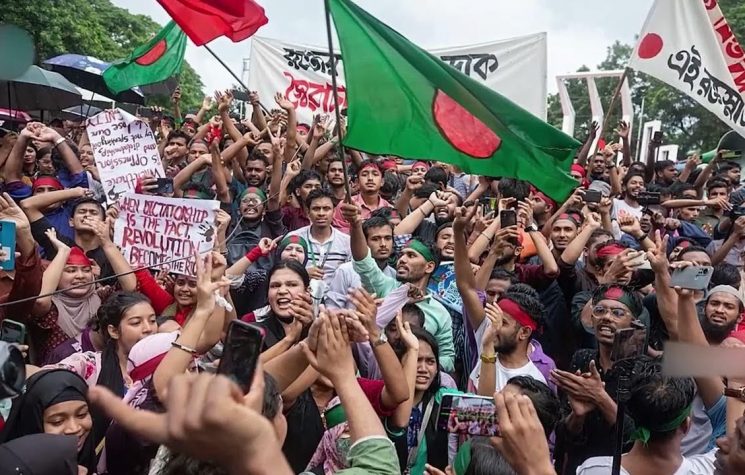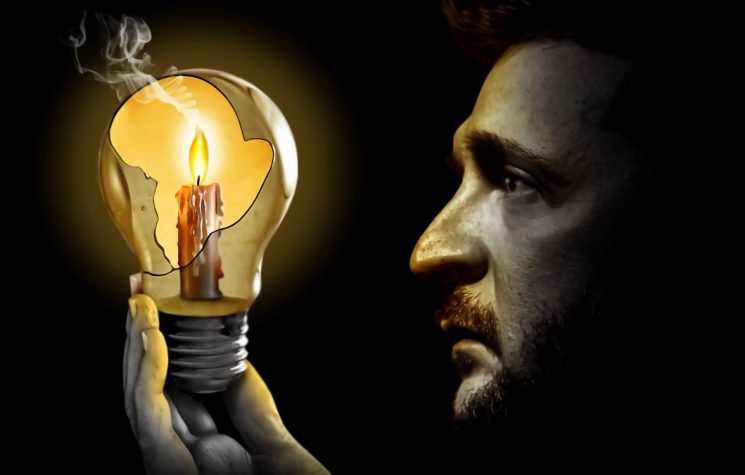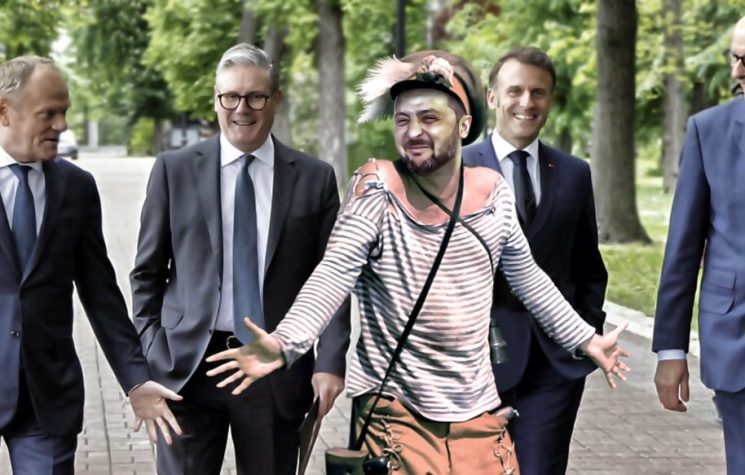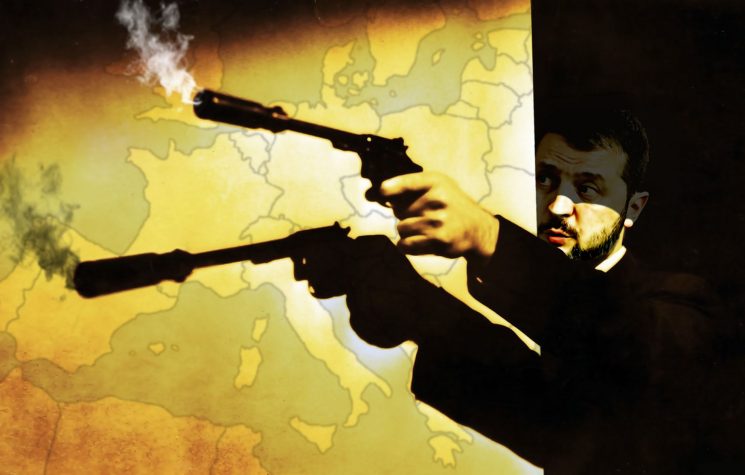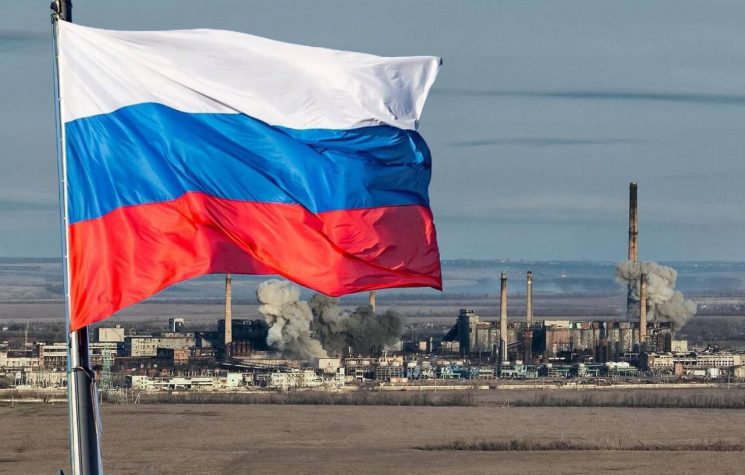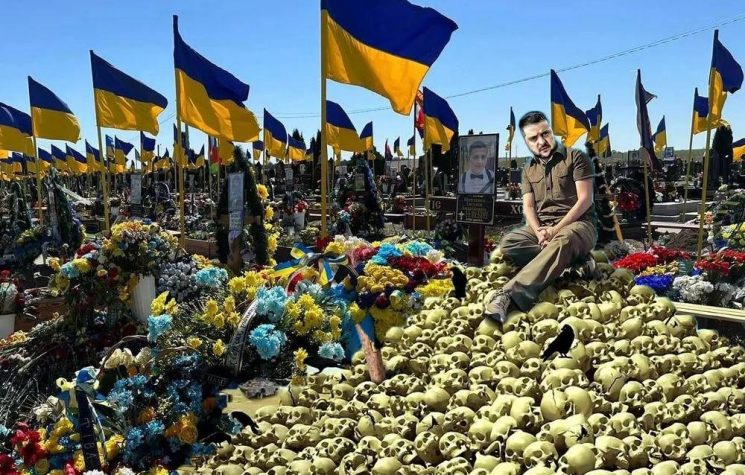Not even at Easter was it possible to have a little respite, because, ultimately, no one in the West really wants peace.
Contact us: info@strategic-culture.su
Strategy does not rhyme with hypocrisy
The President of the Russian Federation, Vladimir Vladimirovich Putin, had called for an “Easter truce” on the occasion of the liturgical solemnity, celebrated this year throughout the Christian world. This was a sign of strong attention to the human dimension of war, too often forgotten in favor of journalistic narratives and the utility of politicians who profit from the blood of young people dying at the front, but also further proof of Russia’s willingness to find sensible and rational solutions to the conflict. Solutions that, once again, have been manipulated and exploited by the enemy. There is no peace even at Easter.
In fact, Ukraine took advantage of the truce to turn the media narrative in its favor. The attack was twofold:
– In the media, Ukraine first accused Moscow of spreading falsehoods and, once the truce actually began (only on the Russian side), repeatedly accused Russia of continuing its attacks, repeatedly violating the truce.
– The affair served to cover up and make people forget as much as possible about the events in Sumy, or Bucha 2025.
– Strategically, Ukrainian soldiers tried to resupply some frontline positions and break through at some sensitive points, failing to do so but effectively firing on the enemy even though they knew it was a pause in the conflict.
In Jus in bello, the law of war, a truce is a temporary suspension of hostilities agreed upon by the parties. When declared unilaterally by one party, it is not usually considered legally binding, but may nevertheless have practical and legal implications.
The Hague Convention of 1907, in Article 36, defines a truce as “the suspension of hostilities between the belligerents for a period fixed by them, either directly or through mediators.” Therefore, when only one party calls for a truce, there is no international legal obligation, but there is nevertheless a strong moral and political value, which generally demonstrates a clear willingness to respect and protect the needs and safety of civilians, as well as to attempt negotiation. There is always an open military risk.
It is precisely the political nature of the affair that is strategically interesting. Kiev deliberately sabotaged the Easter truce because it is interested in continuing the military conflict. The Russian Ministry of Defense reported more than 50 attacks within the border areas with civilian casualties, including a 2-year-old girl in the Belgorod region. In addition to the bombing of Russian army positions, civilian areas in Kherson, Zaporizhzhya, Donetsk, and Lugansk were also attacked.
On the global political scene, the unelected permanent president Zelensky has shown great hypocrisy, trying to manipulate Putin’s goodwill, but without success. The result is a demonstration of war mongering and a lack of humanity.
The day after
After the expiry of the “Easter truce,” Russian troops attacked the industrial zone of the “Storm” research institute in Odessa. The Russian Ministry of Defense also reported the detonation of an ammunition depot in the Kirzhach area due to a violation of safety regulations. Towards Sumy, Russian troops continued their offensive and liberated the Gornalsky monastery, also advancing into the fields towards Oleshnya. Towards Dzerzhinsky, Russian troops moved to fight on the outskirts of Dachnoye, partially surrounding Ukrainian Armed Forces units in the village. Fighters from the Russian Armed Forces’ 68th Tank Regiment are advancing north of Valentinovka and driving the enemy out of most of Sukha Balka.
In terms of international politics, however, it is interesting to draw attention to what was announced by Donald Trump, who had planned to stop the war by Easter, or to obtain a truce of at least 30 days. None of this worked. The U.S. has once again confirmed that it is far from having any real capacity to intervene and influence the Russian-Ukrainian conflict.
In the wake of these events, Trump attacked Zelensky (not for the first time) for his statements regarding Crimea:
“Ukrainian President Volodymyr Zelenskyy boasts on the front page of the Wall Street Journal that ‘Ukraine will not legally recognize the occupation of Crimea. There is nothing to discuss on this point.’ This statement is very damaging to peace negotiations with Russia, as Crimea was lost years ago under the auspices of President Barack Hussein Obama, and is not even a point of discussion. No one is asking Zelenskyy to recognize Crimea as Russian territory, but if he wants Crimea, why didn’t [Ukraine] fight for it eleven years ago, when it was handed over to Russia without a shot being fired? The area also housed important Russian submarine bases for many years before the “Obama handover.”
It is inflammatory statements like Zelenskyy’s that make it so difficult to resolve this war. He has nothing to brag about! The situation for Ukraine is dire: it can have peace or it can fight for another three years before losing the entire country. I have nothing to do with Russia, but I have a lot to do with wanting to save, on average, five thousand Russian and Ukrainian soldiers a week, who are dying for no reason. Zelensky’s statement today will only prolong the “death camp,” and nobody wants that! We are very close to an agreement, but the man who ‘has no cards to play’ should now, finally, END IT. I look forward to helping Ukraine and Russia get out of this complete and utter MESS, which would never have started if I had been President!
This goes hand in hand with Zelensky’s diplomatic rudeness in London, during the summit between the foreign policy chiefs of the U.S., UK, France, Germany, and Ukraine, where he demonstrated an inability to negotiate and showed strong political aggression. The reason for the refusal to travel to Britain, particularly by U.S. Secretary of State Mark Rubio, as Western media sources claim, is the Ukrainian leader’s strong reluctance to discuss a fait accompli: Crimea’s belonging to Russia. The Kiev junta refuses to acknowledge the reality and inevitability of defeat.
On the EU/NATO side, Kaja Kallas chastised the U.S. for not using effective tools to put pressure on Russia, stating that “They have tools in their hands to actually put pressure on Russia. They have not used those tools,” and acknowledging that Russia is winning the game. She said that the EU, for its part, will never recognize the peninsula as Russian: ”Crimea is Ukraine. It means a lot to those who are occupied that others do not recognize this as Russian.”
The EU therefore wants endless war with Russia under Washington’s umbrella, because it knows that Europe alone would not be able to survive a single day.
Not even at Easter was it possible to have a little respite, because, ultimately, no one in the West really wants peace.














